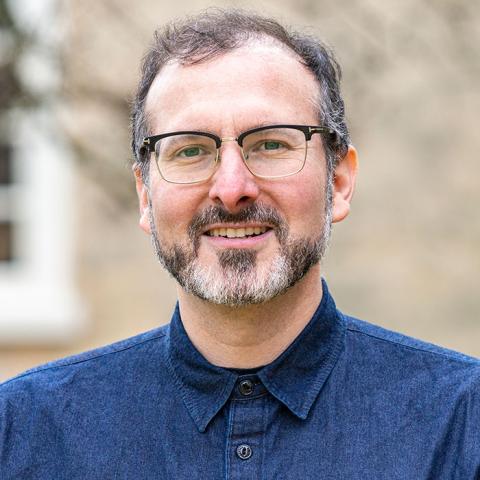Education
M.A., M.Phil, and Ph.D., Yale University
MFA, Iowa Writers' Workshop
B.S., Northwestern University
Biography
Andrew Friedman's teaching and research interests include U.S. empire, race and migration; the built environment; and transnational and decolonial histories of the United States and the world.
Research
Friedman is the author of Covert Capital: Landscapes of Denial and the Making of U.S. Empire in the Suburbs of Northern Virginia (University of California Press), named a best scholarly book of the decade by The Chronicle of Higher Education, winner of the Stuart L. Bernath Book Prize from The Society for Historians of American Foreign Relations and recipient of Honorable Mention for the Spiro Kostof Book Award from the Society of Architectural Historians.
Covert Capital is a cultural and spatial history that chronicles how the CIA and other "national security" institutions that defined U.S. foreign policy in the era of global decolonization created domestic space around their own headquarters and abroad. The project argues for an alternate genealogy for U.S. migration by tracing the social, work and family relationships, formed during violent U.S. endeavors, which carried American agents abroad and migrants from Vietnam, El Salvador, Iran, Cuba and elsewhere home to the D.C. suburbs. As U.S. empire expressed itself abroad by developing roads, embassies and villages, its subjects arrived in the covert capital as real estate agents, home owners, mall builders and landscapers, constructing places, living monuments and a complex political space that nurtured, reflected and critiqued U.S. foreign policy and global operations after World War II. Ushering the study of U.S. empire into everyday life, the book explores how an imperial U.S. citizenship was lived and disavowed in everyday space, and re-narrates the history of postwar suburbanization as the spatial device that helped produce an imperial citizenry and subjectivity.
Teaching
International History of the United States; History of the U.S. Built Environment, 1870-Present; Harvest of Empire, U.S. History, 1898-Present; U.S. History, 1973-Present; Global History of World War II and the Postwar Moment; Archive Theory and Practice; Political Technologies of Race and the Body; Gender, Intimacy and U.S. Foreign Policy; Cultural Landscapes of American Empire; Walter Benjamin on Lancaster Avenue.
Selected Publications
Book:
Covert Capital: Landscapes of Denial and the Making of U.S. Empire in the Suburbs of Northern Virginia (American Crossroads Series, University of California Press, 2013)
Recent Articles:
"U.S. Power in a Material World," in A Companion to U.S. Foreign Relations, Colonial Era to the Present, Volume II, ed. Christopher R.W. Dietrich (John Wiley & Sons, 2020).
"Decolonization's Diplomats: Antiracism and the Year of Africa in Washington, D.C.," Journal of American History 106.3 (December 2019): 614-638.
"A Monument as a Sensory Intervention," in Monument Lab: Creative Speculations for Philadelphia, eds. Paul M. Farber and Ken Lum (Temple University Press, 2019).
"US Empire, World War 2 and the Racialising of Labour," Race & Class 58.4 (April-June 2017): 23-38.
"Author's Response," Book Review Symposium on Covert Capital, Progress in Human Geography 41.2 (April 2017): 263-266.
"The Fabric of Spying: Double Agents and the Suburban Cold War," in Making Suburbia: New Histories of Everyday America, eds. John Archer, Paul J.P. Sandul and Katherine Solomonson (University of Minnesota Press, 2015).
"The Global Postcolonial Moment and the American New Town: India, Reston, Dodoma," Journal of Urban History 38.3 (May 2012): 553-576.
My Links
- Covert Capital
- Covert Capital
- Covert Capital on Against the Grain
- Covert Capital in The Washington Post
- Covert Capital in The Chronicle of Higher Education
- Covert Capital in The American Historical Review
- Covert Capital in Perspectives on Politics
- Covert Capital in The AAG Review of Books
- Covert Capital in Diplomatic History
- Covert Capital in Buildings & Landscapes
- Covert Capital in Greater Greater Washington
- Covert Capital in In These Times
- Covert Capital in The Journal of American Culture
- Covert Capital in Urban History
